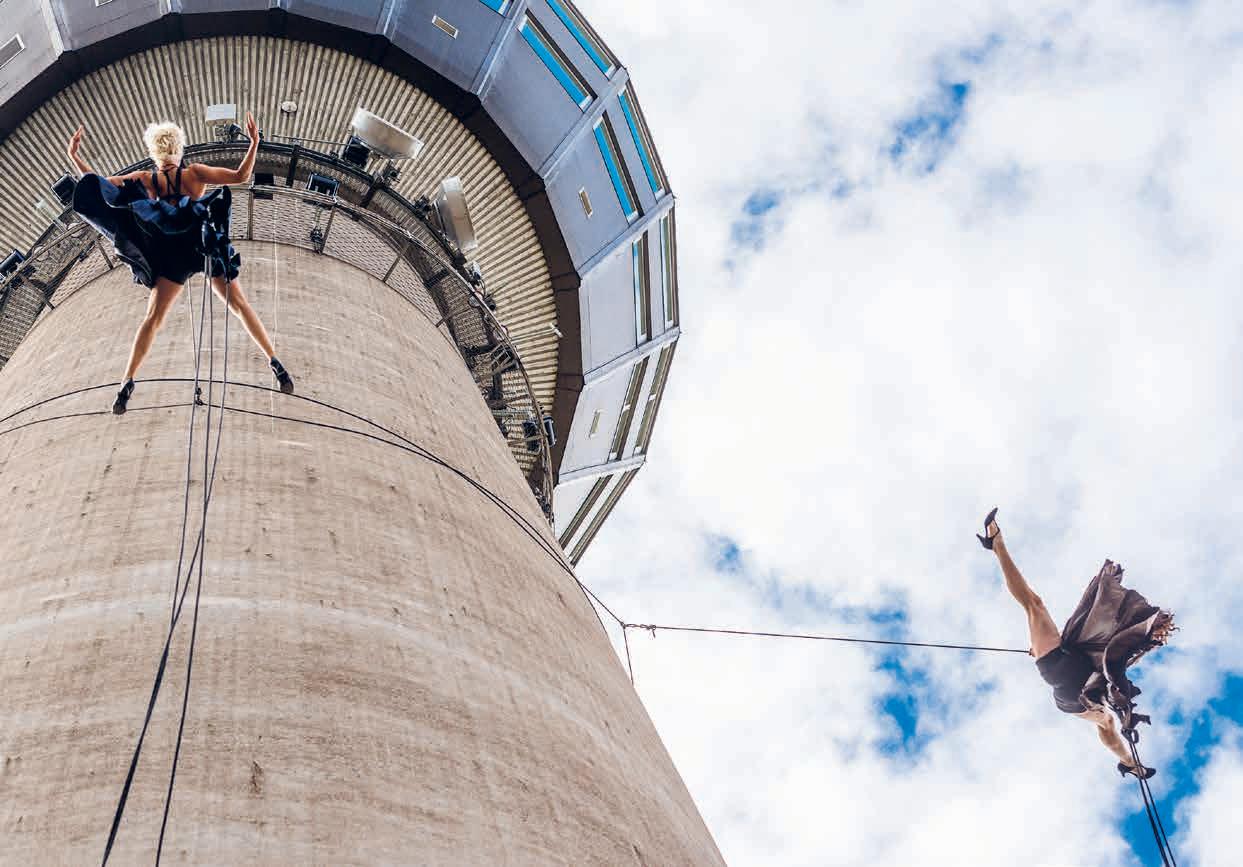
7 minute read
Forest Pre-school Enriches Children’s Creativity and Imagination
stead of immediately shaking hands for friendship, people have first asked who the visitors are and what has brought them to this place.
Such encounters with strangers have shaped the locals into a tolerant, perhaps even diplomatic, bunch. Perhaps this is the relaxed attitude the Savo residents are known for.
A PERMISSION TO LIVE A LIFE THAT REFLECTS YOU
The city has a direct and tolerant atmosphere: come as you are and live a life that reflects you as a person. People here have a permission to be happy, smile and be in good spirits.
The locals have a word for such an attitude, “lupsakkuus”, which could be translated as “jovial”. Above all, this joviality is a way of communication, but it also includes a smidgen of caring for others, gentle curiosity and a tendency to crack a joke. Sirpa Kähkönen, an author who grew up in Kuopio, can clearly remember all this from her childhood and youth. – It is not difficult to talk to others and make social contacts here. It is common to start by chatting about this and that, and only later move on to the actual topic of conversation. I still get reminded of this joviality whenever I am in Kuopio, visiting the market hall, square or a café. There is a certain kind of peacefulness and general friendliness, a desire to chat and even make jokes.
Similar directness can also be seen in different phenomena and activities. While people from Kuopio tend to look at things from different viewpoints before acting, they are open to new ideas and bold to take action.
Kuopio’s internationally well-known dance festival has also contributed to this atmosphere. Courage and taking action are also translated into perseverance, collaboration and a certain sense of pride among the local com-
munity. Riku Lehtopolku, the artistic director of the Kuopio Dance Festival estimates that the perseverance and community spirit of local volunteers have been moving the festival forward for 50 years by now. – Kuopio has curious and openminded inhabitants who do not hesitate to work towards new things. The people are willing to do things together and make ideas work. Starting an international dance festival here with volunteers 50 years ago was an extremely bold move, and the fact that the festival is still going strong deserves our respect.
NEW WINDS FROM EUROPE
Kuopio was officially founded by Gustav III of Sweden on 17 November 1775. After this, trade in the area became increasingly active, the city’s number of inhabitants increased, and first schools were established. Steamships coming to the city brought new influences from faraway places. In fact, Kuopio quickly became the capital of eastern Finland, and a centre of education and culture.
Many prominent people have since then originated from the city, contributing to building Finland, Finnishness and the country’s education and culture. Prominent people born, living and exerting influence in Kuopio have risen, and continue to rise, to the top of politics and the economy as well as music, literature and visual arts.
One of the most well-known and influential women in the city was Minna Canth, a local author, journalist and merchant (1844–1897). She was a naturally curious person actively engaging in discussions and paying attention to equality, freedom of speech and various forms of social injustice.
Great cultural figures and thinkers often met in the salon of the building where Minna lived and worked. Those discussing world events at her home included painter Eero Järnefelt and his siblings, author Juhani Aho, composer Jean Sibelius, and painter Akseli GallenKallela.
Visitors from further away brought news all the way from Central and Southern Europe, where the intelligentsia were interested in similar social issues as Minna. In fact, Kuopio might have been closer to the great wide world than people might have imagined. – The way Minna thought, wrote and behaved caused confusion, perhaps even annoyance and fear. Nevertheless, Minna’s era in Kuopio was something special, setting the city apart from ordinary rural towns. And how amazing is it that she was dealing with the same themes centuries ago that we continue to discuss today, reflects Anja Lappi, an entrepreneur in the cultural sector.
International Kuopio Dance Festival over 50 years ago was an extremely bold move.
AN INTERNATIONAL CITY
Today, Kuopio is a genuinely international city and one of Finland’s havens for education and culture. New figures in science and culture aim to follow on the footsteps of Minna Canth and other prominent locals, and the city continues to provide a fertile breeding ground for them.
The future influencers and thinkers can draw from the high-quality education, versatile business life and excellent cultural activities Kuopio offers. The strong character of the city and features of the local inhabitants lay a foundation for all of this.
Even though the character of the Kuopio’s residents has shifted as cultures have come into contact, the traits known since previous centuries can still be identified. It seems that the familiar, jovial attitude of life continues to carry people forward.
Dignitaries from Kuopio
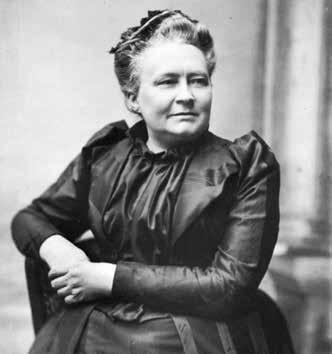
LITERATURE:
Minna Canth promoted women’s right to vote, freedom of speech and questions relating to inequality at the end of the 19th century. She wrote, discussed, influenced and keeps influencing us even today. Her voice still echoes on the traditional pedestrian Ränni streets of Kuopio.
MUSIC:
Erja Lyytinen is a singer, songwriter and blues guitarist who was awarded the title of World’s Best Guitarist. She studied in the Kuopio Senior High School of Arts, which continues to educate talented musicians even today.
DESIGN:
Ritva-Liisa Pohjalainen is one of the most acclaimed designers in Finland. Her road as an artist led her from fashion design to the design of jewellery, ceramics and glass sculptures.
SCIENCE:
Hilkka Soininen is a Finnish doctor distinguished as a researcher of memory disorders and Alzheimer disease. She made a long career as a professor in neurology in the University of Eastern Finland.
POLITICS:
Martti Ahtisaari is a Finnish diplomat and peacemaker, who held the office of President of the Republic of Finland during 1994–2000. He spent a large part of his childhood in Kuopio.
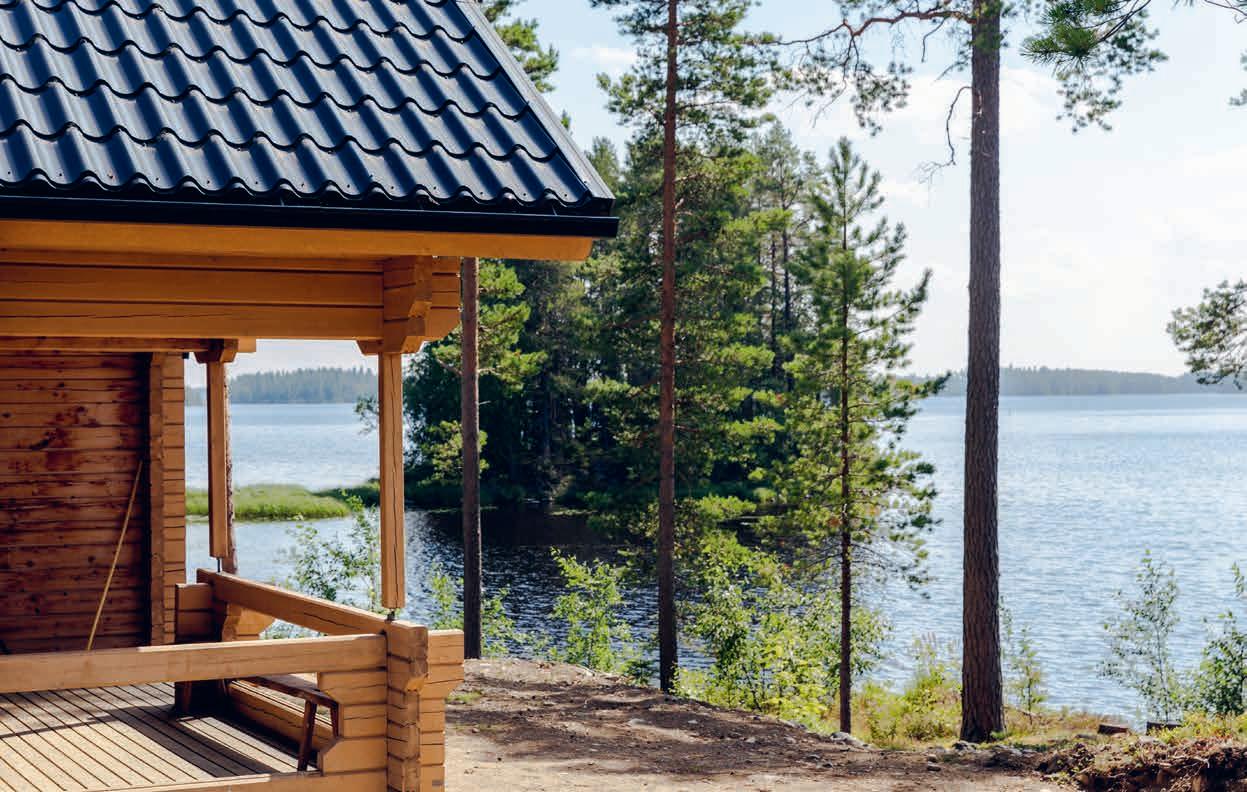
Life and culture in Kuopio
Living by the water, spending time in a summer cottage, eating local food, and enjoying the peace of mind that comes with sitting in a sauna are just some of the highlights of life in Kuopio.
PHOTOS KUOPIO-TAHKO MARKETING
Berries can be picked from the backyard.
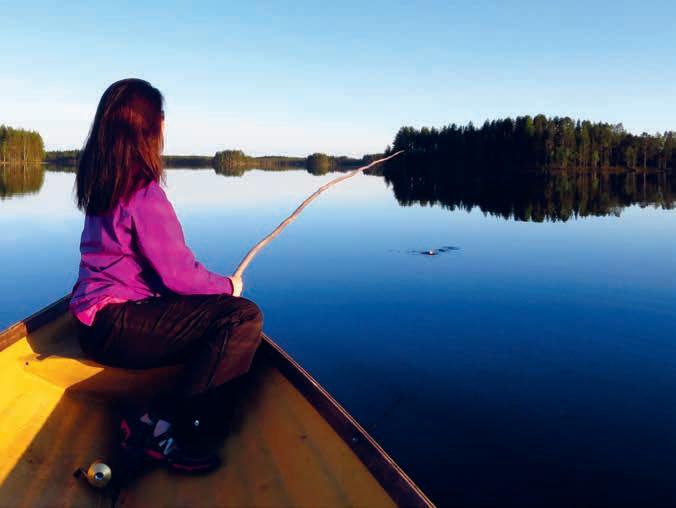
What drawns people to cottage life is nature and its quietness, peace and calmness.
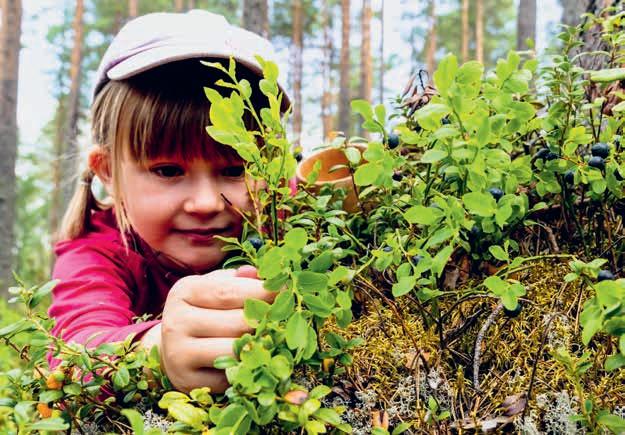
In Kuopio water is intertwined with daily life, people live by the water and also spend time at their summer cottages by the lakeside. Kallavesi is Finland’s tenth largest lake, and the total length of Kuopio’s shoreline is 6,340 km when also including island shores. There are about 2,000 islands in the area. The neighbourhood of Saaristokaupunki has over 13,000 inhabitants, all of them living just a few hundred meters from Lake Kallavesi.
The Maljalahti area, located just one kilometre from the city square, also offers amazing living by the water in a row of apartment buildings with a shore of their own. Each building has a long dock where the residents can keep their own boats.
Spending time at cottages by Lake Kallavesi is also a form of lakeside living. People use their cottages to relax and cook fresh, Finnish ingredients, including fish caught from Kallavesi. Bathing in a sauna, an activity all Finns love, is an essential part of cottage life.
COTTAGE AS A WAY OF LIFE
Nearly all of Kuopio’s residents have a cottage or boat, many even have both. A person does not have to be particularly well-off to own a cottage or a boat. Instead of being a luxury item only affluent people can afford, enjoying lakeside life is part of people’s daily lives.
Kuopio has the highest number of leisure time dwellings in Finland at around 10,800. What draws people to cottage life is nature and its quietness, peace and calmness. People typically follow the daily rhythm of nature and have no need to keep looking at their watches.
Kaija Lipponen, the chair of Kuopio Tourist Guide Association, encourages people to try and live by the rhythm inherent in Finland’s nature, especially in the summer. – The Finnish summer days are very long. You have not fully experienced a Finnish summer unless you have witnessed the sun rise and fall on one of these nightless nights. And the magic of these endless summer days is emphasised when experienced by the lakeshore.
When Finns spend time at their cottages, they typically wish to return to old times, which includes doing away with some of the comforts of modern life: they enjoy washing dishes by hand, chopping wood, and




